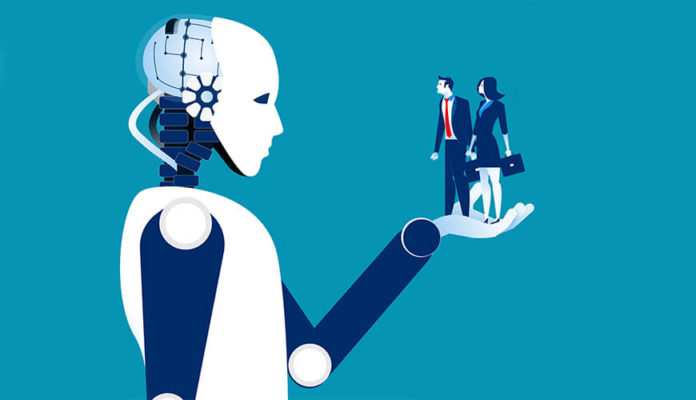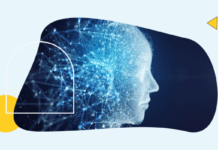With the recent emergence of “smarter” AI, wildly optimistic visions – as well as dark horror stories –currently abound. While we’re still a couple of light years away from Star Trek: The Next Generation’s beloved android Data, there are a few AI-enhanced arenas where the potential change for the average consumer is enormous.
Today, truly different realities are emerging for the global consumer population thanks to improved AI capabilities. What kind of AI-inspired changes to our lives can we expect in the near future?
Will forex trading (finally)be truly automated?
Many millions of retail investors now trade forex or binary options. Previously, the only alternative to paying for a training course – and starting the slow plod towards becoming an effective trader – was buying a trading bot.These bots traded based on the same technical analysis as a human investor might pursue and, in theory, should have been able to profitably predict and trade on market movements. So, why didn’t everyone buy a trading bot and make money in absentia?Because they didn’t work. Setup was onerous, trading (often) wasn’t fully automated, and – worst of all – developers’ claims of 90-percent-plus accuracy were, quite frankly, rubbish.
The persistent reality of available trading bots has been – up until recently – that they’re simply not as goodas humans at trading forex. Since the last unsubstantiated and overblown marketing hype about existing bots circa 2017, much has indeed changed in two years. AI is now at a point of intuition, especially when applied to an activity like forex trading. The dawn of truly better (than a human) trading bots is finally here. While technical analysis and accumulation of historical data allowed previous bots to emulate human traders, that je ne sais quoi of a human presence was absent, as were respectable results. This is no longer the case.
Modern automation (AI) is rapidly catching up to human savvy,particularly in the crypto trading arena. In a further dramatic shift from the old school, perhaps the adults of tomorrow really will simply buy a trading bot and make passiveincome in a fully automated, successful daily trading regime. It’s been a fantasy so far, but AI is rapidly closing the gap between reality and fiction.
Speech-to-text is set to balloon social media
IT support companies regularly deal with office automation issues and -not surprisingly – some of the most persistent problems centre on voice control or speech-activated apps.However, this arena is now becoming one with Hollywood’s idealized future – smart homes and cars will make all of us voice commanders, so it seems.
Yet, a massive glut is looming on social media platforms, now that speech-to-text is becoming a seamless experience. Even software is available now for text to speech online that can help give professional voice to your presentations.
As speech-to-text moves away from cumbersome predecessors like Dragon Naturally Speaking, a vast amount of text is set to “litter” social media platforms over the next few years. While it might help people speak more proficiently in their chosen language, it will also surely enable a massive surge in the amount of text in social media posts. Those given to waxing poetic will be able to compose huge swathes of (properly proofread) text simply by chatting to their phone.
Platforms like Twitter – which limit posts by default – might remain relatively unchanged. However, Facebook and other platforms(which give free poetic reign to users)should anticipate a giant uptick in the sheer volume of posted text. Once AI makes talking truly equal to texting- and that intelligence is already here – these public platforms could very well swell to previously unthinkable proportions. Whether voice-to-text intelligence fundamentally alters the nature of social media, however, remains to be seen. It’s great news for valuable intel that can now be disseminated far wider and faster, but not-such-great news for those who currently struggle to find meaning amidstall the waffle online.
What’s wrong with me, Dr. Roboto?
Robot nurses in white lab coats might seem to be sci-fi fodder, but AI in medicine has far more real and valuable implications for the modern consumer. The robot nurses are no doubt coming (eventually), but the core value of visiting your GP is now rapidly becoming a process of self-diagnosis.The medical fraternity remains sceptical about a bot’s ability to correctly diagnose the many ills that affect us, but that doesn’t mean it isn’t already happening.
Indeed, developers of diagnosing apps have made such progress over the last few years that some are labelling their bots as better than human doctors. While it’s set to be a resistant arena (both practitioners and patients are sensitiveto the issue of personal health and treatment), it’s only a matter of time before self-diagnosis catches on, especially as it draws level to (or exceeds) human doctors’ abilities.
Surgery via incredibly refined robots has already become familiar to us, wherein a surgeon will work through a console to perform delicate surgeries. The surgery itself is carried out by robotic arms while the surgeon directs operation.Allowing intelligent robots to treat human illness according to their diagnosis, however, is entirely different. Despite the difference, diagnosis and recommended treatment are likely soon to leave human hands, as well. Once the domain of experienced doctors, highly enhanced doctoring bots are poised to eclipse human health identification completely.
All aspects of human life could change with AI
Perhaps the most resounding affirmation of AI’s impact can be seen in just how many “old school” methods are disappearing. Behaviours are changing. The very nature of a modern human existence is being altered. AI is enabling a drastic departure from many dated concepts. Visiting the doctor, searching for a suitable human tutor, or even sitting at a desk to type documents might all be defunct activities within the next few years.
Today, the impact of AI is freeing people from old school/new school comparisons, as it enables exceedingly more remote – yet intelligent – activities. Far from merely enhancing existing practices, today’s AI is set to obliterate many of them, hopefully for a smoother, more intelligent (and often more effective) alternative. The old methods of how people should do things – as opposed to a new way of doing the same things – are now often irrelevant. That’s how “new” AI can be when applied to persistent human needs and dilemmas. The way we live and enhance our lives – even why we behave the way we do and what we live in – is all fair game to AI.








